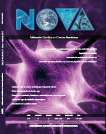The development of different strategies different to agrochemicals in agriculture has opened new possibilities for research with microbes as biological control alternative, given its biochemical abilities and ease of use for crop protection. The aim of this study was to establish the biocontrol effect of Bacillus spp., against Fusarium sp., under greenhouse conditions in thyme. The methodology included isolation of possible pathogen causing vascular wilt and yield losses, its identification by taxonomic keys, evidence of direct antagonism plate where the radius of colony growth was evaluated, percentage of inhibition and growth rate, tests undergreenhouse conditions in thyme plants assessed every 5 days for 1 month by severity scale. Finally, we confirmed the presence of the pathogen in a second isolation in order to confirm Koch’s postulates. The results showed that the cause of the disease was the fungi Fusarium pseudonygamai . Antagonism test showed that treatment with Bacillus UCMC (B2) had the best biocontrol effect in vitro and under greenhouse conditions against Fusarium sp, giving its highest percentages of inhibition, longer roots, increased dry weight and decrease or absence of disease symptoms. It was concluded that among the microorganisms under study, Bacillus UCMC (B2) had the best potential biocontrol under greenhouse conditions against Fusarium sp in thyme plants.
keywords:
biological control, antagonism, bacilli gram positive, vascular wilt, aromatics.









